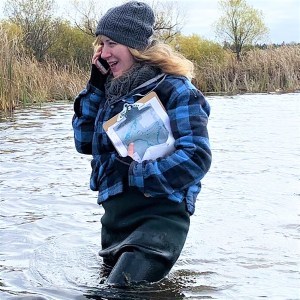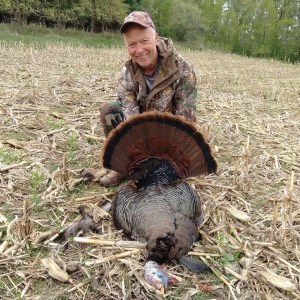WI Land+Water is committed to providing our members with high quality, relevant trainings to develop and maintain highly knowledgeable conservation staff and supervisors. This involves consistent learning programs and skill development.
Annually, WI Land+Water, along with members of the State Interagency Training Committee (SITCOM), identify educational needs and collaborate to provide trainings. SITCOM is comprised of staff from WI Land+Water, DATCP, Extension, DNR, USDA-NRCS, and Portage County.
SITCOM’s training organization prevents duplication in trainings, while at the same time provides sharing opportunities when a partner has materials already developed for a training. Ultimately, this saves considerable time in training and lesson development.

“I like going to as many trainings as possible because I always learn something or at least refresh my memory,” said Amanda Kasparek, Clark County Agronomist. “I attend the in-person and webinar trainings because I think everyone should always learn new things, especially in their industry. It helps me be better at my job when I can share what I learned with coworkers and producers. The more variety the better; otherwise, it kind of gets repetitive after a while.”
She also appreciates WI Land+Water covering the training costs because she would not be able to attend as many trainings if it were not for a lot of them being free or low cost.
In addition to offering in-person and webinar trainings, WI Land+Water distributes a SITCOM Training E-newsletter to anyone interested in receiving the training listing.
“There is always something new and interesting to learn,” continued Kasparek. “I appreciate duplicate trainings as well because if I couldn’t attend the first one I may be able to attend the next one or get a refresher.”
WI Land+Water holds a County Conservationist meeting twice a year.
“They are a good way to network with other people, and the presentations are useful for educational purposes as well,” said Kasparek. “I think they could also be a good resource to learn more about being a county conservationist in case a person moves up into that position one day.”
Another way that local conservation professionals can learn new information and share resources is through our area associations.
There are eight area associations in WI Land+Water. They are organized to further the common interests of county conservation programs in their areas, facilitate information exchange, sponsor educational and training events, elect area representatives to the WI Land+Water Board of Directors, and provide area resolutions for consideration at the WI Land+Water annual meeting. Each association has their own officers, budget, and agenda schedules.

“The value of area association meetings has been substantial for me,” said Mike Hofberger, Calumet County Supervisor and Calumet Land and Water Conservation Committee Chair. Hofberger said that some of the most valuable aspects of being involved with the area associations have been the annual tours and guest speakers highlighting a variety of conservation issues and how they are dealing with them. Hofberger noted that the insight gained to different solutions to similar problems is especially valuable.
“[At area association meetings], county supervisors get to discuss conservation problem solving techniques on a larger scale, rather than only talking about specific agenda items,” continued Hofberger. “It is an excellent team building opportunity.”
A challenge that Mike sees in these meetings is having content of value and interest to both the county committee members and the staff.
Generally, staff have more technical expertise than committee supervisors. It is important for staff to effectively educate committee members for them to be of maximum value in their job of setting guidelines, priorities, and providing support. Thoughtful planning should go into area meeting agendas to ensure information will be of value to all.
Area associations are able to accomplish this balance and offer opportunities for networking and sharing information.
Kasparek stated, “I attend the area association meetings to give my county’s updates and listen to the other counties’ updates. I also learn and ask questions about issues that we have within our county and to see what other counties have done to address [similar issues]. For example, a recent topic was about updating our Manure Storage Ordinance.”
